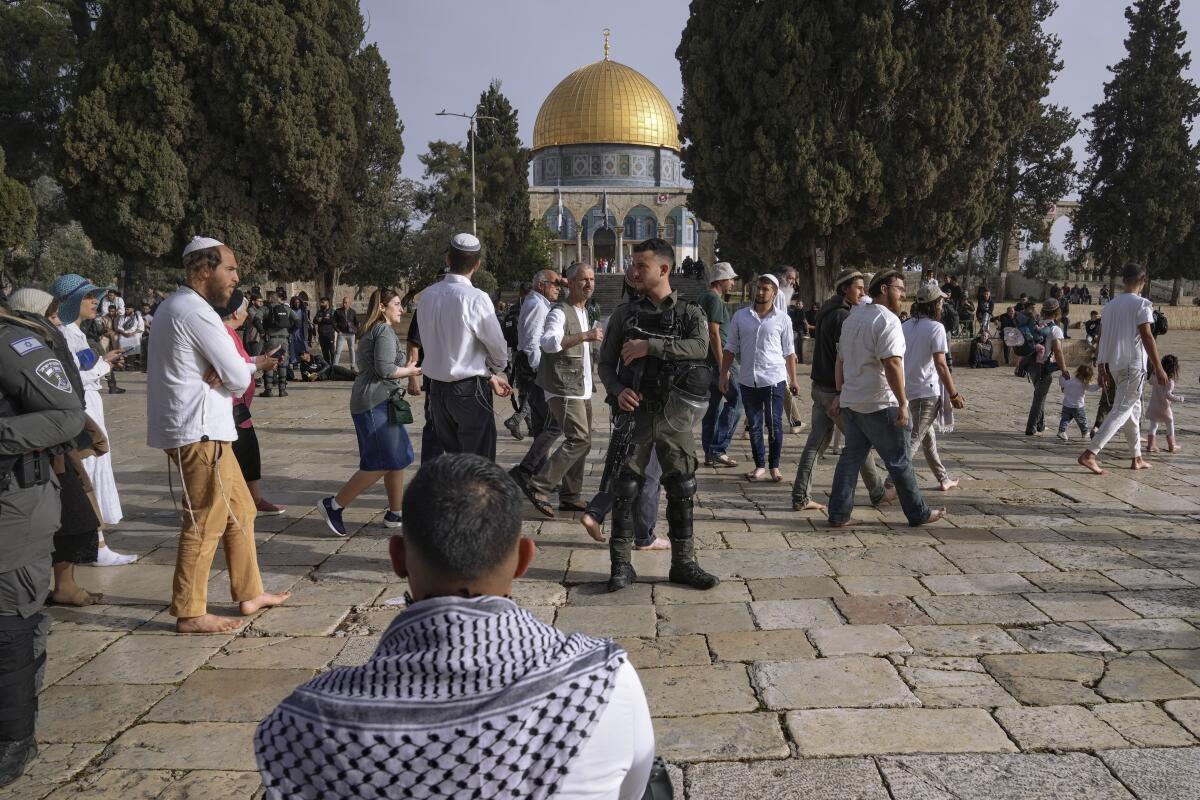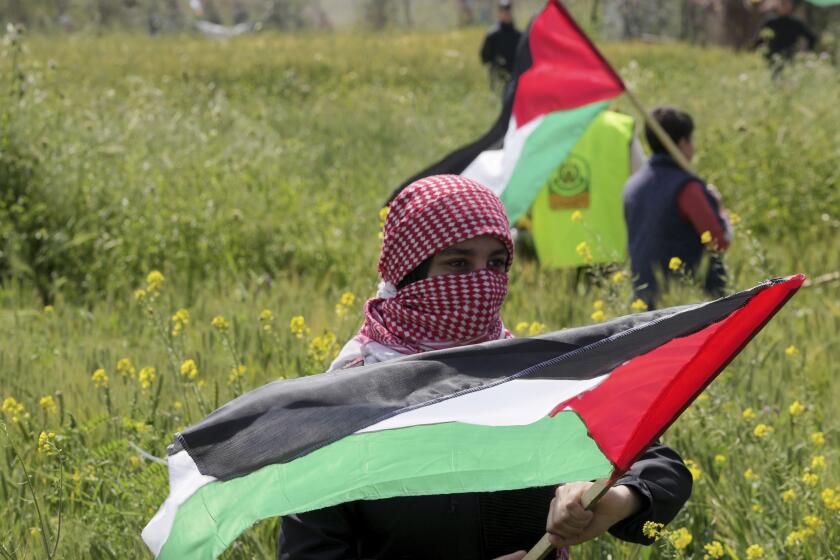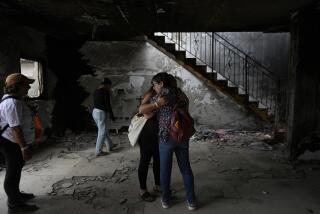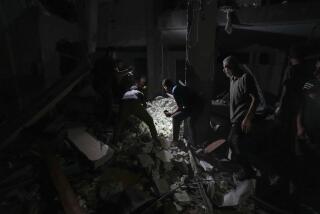Tensions build around Jerusalem shrine after Syria fires rockets

JERUSALEM — Israeli warplanes and artillery struck targets in Syria following rare rocket fire from the northeastern neighbor, as Jewish-Muslim tensions reached a peak Sunday at a volatile Jerusalem shrine with simultaneous religious rituals.
Thousands of Jewish worshipers gathered at the city’s Western Wall, the holiest place where Jews can pray, for a mass priestly benediction prayer service for the Passover holiday. At the Al Aqsa Mosque compound, a walled esplanade above the Western Wall, hundreds of Palestinians performed prayers as part of observances during the Muslim holy month of Ramadan.
Hundreds of Jews also visited the Al Aqsa compound under heavy police guard Sunday, to whistles and religious chants from Palestinians protesting their presence.
Such tours by religious and nationalist Jews have increased in size and frequency over the years, and are viewed with suspicion by many Palestinians who fear that Israel plans one day to take over the site or partition it. Israeli officials say they have no intention of changing long-standing arrangements that allow Jews to visit, but not pray, in the Muslim-administered site. However, the country is now led by the most right-wing government in its history, with ultranationalists in senior positions.
Senior right-wing politicians, along with West Bank settler leaders, announced plans for a march through the northern West Bank on Monday, setting the stage for further possible clashes.
Tensions have soared in the last week at the shrine after an Israeli police raid on the mosque. On several occasions, Palestinians have barricaded themselves in the Al Aqsa Mosque with stones and firecrackers, demanding the right to pray there overnight, something Israel has in the past allowed only during the last 10 days of the Muslim holy month of Ramadan. Police removed them by force, detaining hundreds and leaving dozens injured.
The violence at the shrine triggered rocket fire by Palestinian militants from the Gaza Strip and southern Lebanon, starting Wednesday, and Israeli airstrikes targeted both areas.
An Israeli human rights group says that Israel is holding over 1,000 Palestinian detainees without charge or trial, the highest number since 2003.
In Lebanon, Hezbollah’s media office announced that the militant group’s chief, Hassan Nasrallah, received a delegation headed by Hamas leader Ismail Haniyeh on Sunday. The two discussed “the most important developments in occupied Palestine, the course of events at Al Aqsa Mosque, and the escalating resistance in the West Bank and Gaza, in addition to general political developments in the region, the readiness of the resistance axis and the cooperation of its parties,” the statement said.
Haniyeh, who arrived in Lebanon last week shortly before rockets were launched at Israel from south Lebanon, had been scheduled to make a public appearance in Beirut on Friday. But it was canceled for security reasons following the exchange of strikes between Lebanon and Israel. No group has officially claimed responsibility for the rocket attacks, but Israel has accused Hamas of being behind them.
Late on Saturday and early Sunday, militants in Syria fired rockets in two salvos toward Israel and the Israeli-annexed Golan Heights. A Damascus-based Palestinian group loyal to the Syrian government claimed responsibility for the first round of rockets, saying it was retaliating for the Al Aqsa raids.
In the first salvo, one rocket landed in a field in the Golan Heights. Fragments of another destroyed missile fell into Jordanian territory near the Syrian border, Jordan’s military reported. In the second round, two of the rockets crossed the border into Israel, with one being intercepted and the second landing in an open area, the Israeli military said.
Israel responded with artillery fire into the area in Syria from where the rockets were fired. Later, the military said Israeli fighter jets attacked Syrian army sites, including a compound of Syria’s 4th Division and radar and artillery posts.
Turkish President Recep Tayyip Erdogan discussed the violence in a telephone call with Israeli counterpart Isaac Herzog late Saturday, telling Herzog that Muslims could not remain silent about the “provocations and threats” against the Al Aqsa Mosque, and said the hostilities that have spread to Gaza and Lebanon should not be allowed to escalate further.
In addition to the cross-border fighting, three people were killed over the weekend in Palestinian attacks in Israel and the occupied West Bank.
The funeral for two British-Israeli sisters, Maia and Rina Dee, who were killed in a shooting was scheduled for Sunday at a cemetery in the Jewish settlement of Kfar Etzion in the occupied West Bank.
An Italian tourist, Alessandro Parini, 35, a lawyer from Rome, had just arrived in the city a few hours earlier with some friends for a brief Easter holiday. He was killed Friday in a suspected car-ramming on Tel Aviv’s beachside promenade.
More than 90 Palestinians have been killed by Israeli fire so far this year, at least half of them affiliated with militant groups, according to a tally by the Associated Press. Palestinian attacks on Israelis have killed 19 people in that time. All but one were civilians.
More to Read
Sign up for Essential California
The most important California stories and recommendations in your inbox every morning.
You may occasionally receive promotional content from the Los Angeles Times.











